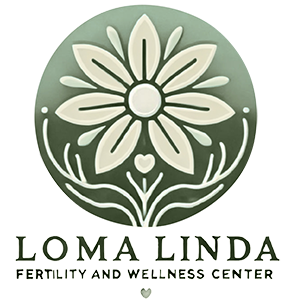Donation & Surrogacy
Building a Family with a Third-Party Partner
Sometimes, the path to parenthood involves a third-party partner—someone who generously donates eggs, sperm, or embryos, or a carrier who helps bring a baby into the world. We understand that this is a deeply personal and significant decision. Our goal is to provide clear guidance and compassionate support, helping you navigate these options with confidence as you build the family of your dreams.
Egg, Sperm, and Embryo Donation
Surrogacy & Gestational Carriers

Egg, Sperm, and Embryo Donation
Donation is a powerful option for individuals and couples who need a third party to conceive.
Sperm Donation
This is often used in a simple insemination procedure, or the donated sperm can be used in an IVF cycle.
Egg Donation
This involves using eggs from a donor, which are then fertilized in an IVF cycle with your partner’s sperm (or donor sperm). The resulting embryos are then transferred to the recipient’s uterus.
Embryo Donation
This involves using an embryo that has already been created through IVF and donated by another individual or couple. This is a wonderful option that gives unused embryos a chance at life.
Becoming an Egg Donor
We are proud to offer an in-house egg donor program for women who wish to give this incredible gift. If you’re a healthy woman between the ages of 20 and 33 with a BMI of 18-25, you might be a great candidate. Donors often feel immense satisfaction knowing they have helped someone become a parent.
Benefits of Donating with Us
Quicker Matching: Our smaller donor base means you’re more likely to be selected quickly.
Financial Compensation: You’ll be compensated for your time and commitment.
A Valued Member of Our Community: Our team deeply appreciates your sacrifice and will make sure you feel cared for and valued throughout the process.
The Process for Donors:
Screening
We conduct a thorough medical, genetic, and psychological screening to ensure you are a good candidate.
Matching
Cycle Coordination
We’ll use medications to align your cycle with the recipient’s.
Egg Retrieval
Egg Donor Pre-Screening Questionnaire
Welcome, and thank you for your interest in becoming an egg donor.
To help determine your initial eligibility, please complete the following screening form honestly and thoroughly.
Surrogacy & Gestational Carriers
A surrogate is a woman who carries a pregnancy for another individual or couple. The distinction between a traditional surrogate and a gestational carrier is an important one.
Traditional Surrogate
Uses her own eggs, fertilized by the intended father’s sperm. She is genetically related to the child. This is a less common approach today.
Gestational Carrier (GC)
Carries a pregnancy using an embryo created with the intended parents’ eggs and sperm (or donor eggs/sperm). The GC has no genetic relationship to the child. This is our preferred and most common path for surrogacy.
Who Should Consider a Gestational Carrier?
A gestational carrier is an excellent option for women who have healthy eggs but may have a medical condition that makes carrying a pregnancy difficult or impossible. This includes situations like the absence of a uterus, a history of recurrent miscarriages, or other health risks. It is also a wonderful way for gay partners to have a child biologically related to one of the partners.

The Gestational Carrier Process
Finding a Carrier
You may choose a family member, a friend, or work with an agency. The carrier will undergo a thorough health and psychological screening to ensure she is a good candidate.
Legal Agreements
All parties will enter into a legal contract that outlines expectations, responsibilities, and parentage. California is a “surrogacy friendly” state, which helps ensure a smooth legal process.
Preparing for Pregnancy
Monitoring and Birth
The carrier is monitored through the early stages of pregnancy. After birth, the baby goes home with the intended parents.
Ready to Learn More?
The journey through third-party reproduction is a complex and hopeful one. We are here to provide the information and support you need to make the best decision for your future family.
